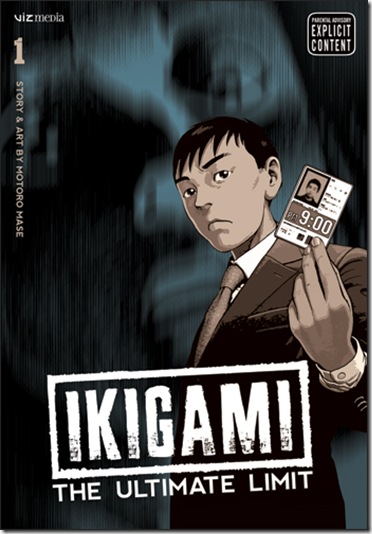The population was beginning a slow descent into decadence. No one seemed to care about the important things in life: honor, integrity, even life itself. So, the government began a new program to make life precious once more. When vaccinations were given to every child, a certain percentage was, instead, randomly injected with a capsule that would activate at a random time, resulting in that person’s death. Through a complex set of procedures, these capsules were tracked in such a way that, without anyone knowing the particulars, an Ikigami – a death paper – would be sent to each of those selected twenty-four hours before the capsule activated. The uncertainty this caused would make people value their lives more, and increase social productivity.
Volume One of Motoro Mase’s Ikigami contains two episodes – each dealing with different aspects of the process. Episode One, The End of Vengeance, is concerned with Fujimoto, a young man who gets work delivering Ikigami, and the story of one of the people to whom he delivers them – a bullied youth who uses his last day for actions both heroic and evil. Episode Two, The Last Song, deals with a young man in a busking duo who tries to achieve pop stardom even though it means deserting his partner.
The basic concept of Ikigami is certainly unusual – maybe even unique – though it does slightly echo elements we’ve seen before in novels like Logan’s Run, for example. Here though, Mase creates the situation in order to examine not how a society would react to such a law [though he does give basic information on that], but how it affects individuals who work in the program and are directly affected by it. His characters are well developed and his storytelling is first-rate. His art is fluid and graceful, recalling Gil Kane as much as any single manga artist. His layouts are precise and serve the story, rather than showcase his expertise.
Ikigami will probably be considered groundbreaking, provocative and even disturbing by readers of most mainstream North American comics – not only for its subject matter, but for the way it boldly tackles it. I could this series being adapted into a series of movies, or even a television program. Mase’s visuals provide ample opportunity for translation to other media, and his stories are involving.
Final Grade: A
